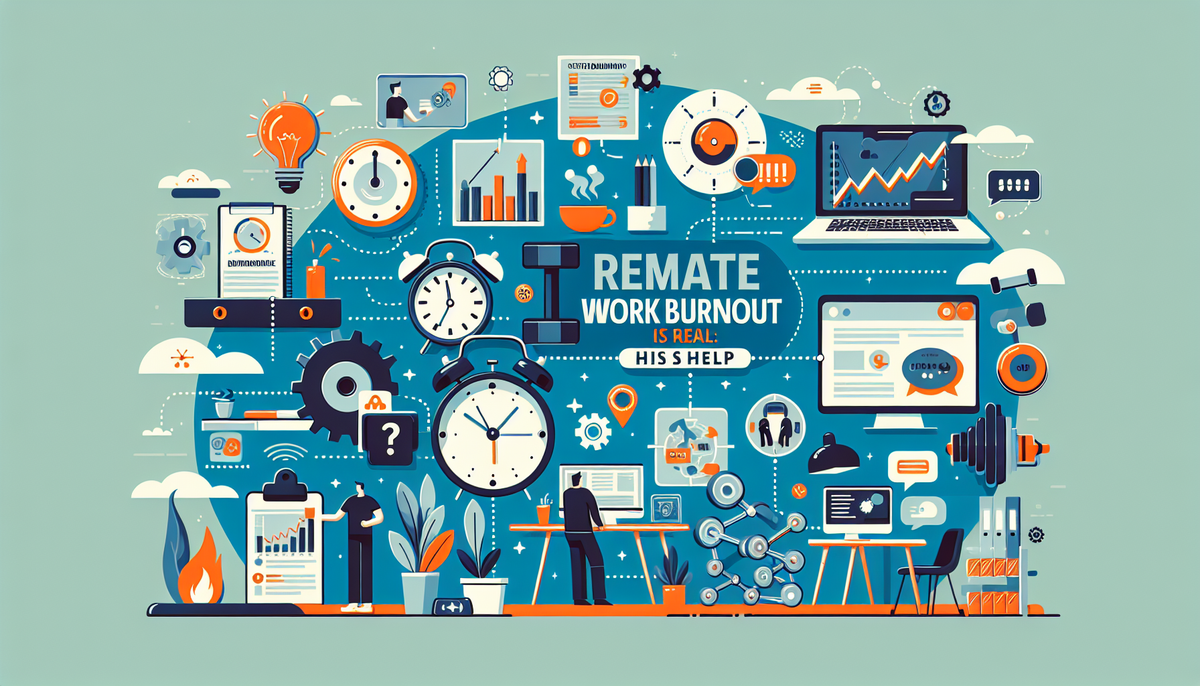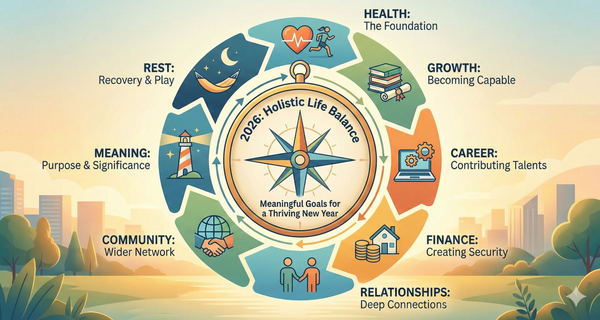Remote Work Burnout Is Real: Here's Help

In today's work culture, remote work has evolved from a perk to a necessity for many employees worldwide. While it offers flexibility and commute-free productivity, it also introduces a new set of challenges, leading to what many describe as "remote work burnout." This phenomenon is becoming increasingly relevant as more businesses adopt long-term remote work policies. The purpose of this article is to shed light on remote work burnout and provide actionable tips for prevention and recovery, focusing on both career and physical health aspects.
What is Remote Work Burnout?
Remote work burnout refers to the physical and emotional exhaustion faced by individuals working from home under prolonged stress. Unlike general stress, burnout is characterized by a sense of reduced accomplishment and a loss of personal identity. Remote work introduces specific factors that significantly contribute to burnout, such as the blurring of lines between work and home life, lack of social interaction, and digital overload.
Key Signs and Symptoms
Signs of remote work burnout include chronic fatigue, irritability, difficulty concentrating, and a general sense of detachment from work. These symptoms can manifest subtly, making it crucial to identify and address them early to prevent long-term consequences on one's mental health at work.
Setting Boundaries for Better Work-Life Balance
To combat remote work burnout, establishing clear boundaries between your personal and professional life is vital. This separation helps maintain a healthy work-life balance and prevents work from encroaching on your personal time.
Create a Dedicated Workspace
Setting up a dedicated workspace can significantly contribute to maintaining boundaries. A space reserved solely for work helps mentally separate professional responsibilities from home life, even if it's just a corner of a room.
Establish Clear Work Hours
Defining specific work hours and communicating them to colleagues and family creates a routine that distinguishes work time from leisure time. This practice not only helps in staying organized but also prevents work from spilling into personal life.
Effective Strategies for Managing Your Workday
Productive workdays require effective time management and rhythm. By adopting certain strategies, you can significantly reduce stress and boost your work-from-home efficiency.
The Power of a Morning Routine
Beginning your day with a consistent morning routine can set the tone for a productive workday. Whether it's a morning jog, meditation, or a quiet cup of coffee, find a ritual that prepares your mind and body for the tasks ahead.
Implement Regular Breaks and a "Shutdown" Ritual
Taking regular breaks helps in maintaining focus and preventing fatigue. Incorporate short breaks throughout your day, and conclude your work hours with a "shutdown" ritual — a routine that signals the end of the workday, helping you transition into personal time.
Prioritizing Physical and Mental Health
A holistic approach that prioritizes your physical and mental health is crucial for building resilience against burnout.
Incorporate Movement into Your Day
Physical activity is a potent stress reliever. Whether it's a structured workout or a simple stretch, incorporating movement into your day boosts energy levels and enhances overall well-being.
Practice Digital Wellness
Digital wellness involves managing your technology use to preserve mental health. This can include setting specific times for checking emails and using apps to monitor screen time to ensure you're not constantly "plugged in."
Staying Connected and Fighting Isolation
Isolation is a significant contributor to remote work burnout. Fostering connections and maintaining communication are essential for combating loneliness.
Schedule Virtual Social Interactions
Regular virtual interactions with colleagues or friends can maintain a sense of connection. Schedule informal video calls or virtual coffee breaks to engage socially, even from a distance.
Communicate Openly with Your Team
Open communication with your team about workloads, deadlines, and personal challenges can alleviate the stress that often accompanies isolation. A supportive work environment reduces feelings of being overwhelmed and undervalued.
Remote work burnout is a real and pressing issue, but it doesn't have to be inevitable. By setting boundaries, managing your workday effectively, prioritizing health, and staying connected, you can foster a more balanced and fulfilling remote working experience. Remember, your well-being is a priority. Take steps today to ensure that you are taking care of both your career and your physical health while working from home. Embrace these strategies to not only combat burnout but thrive in the remote work landscape.




